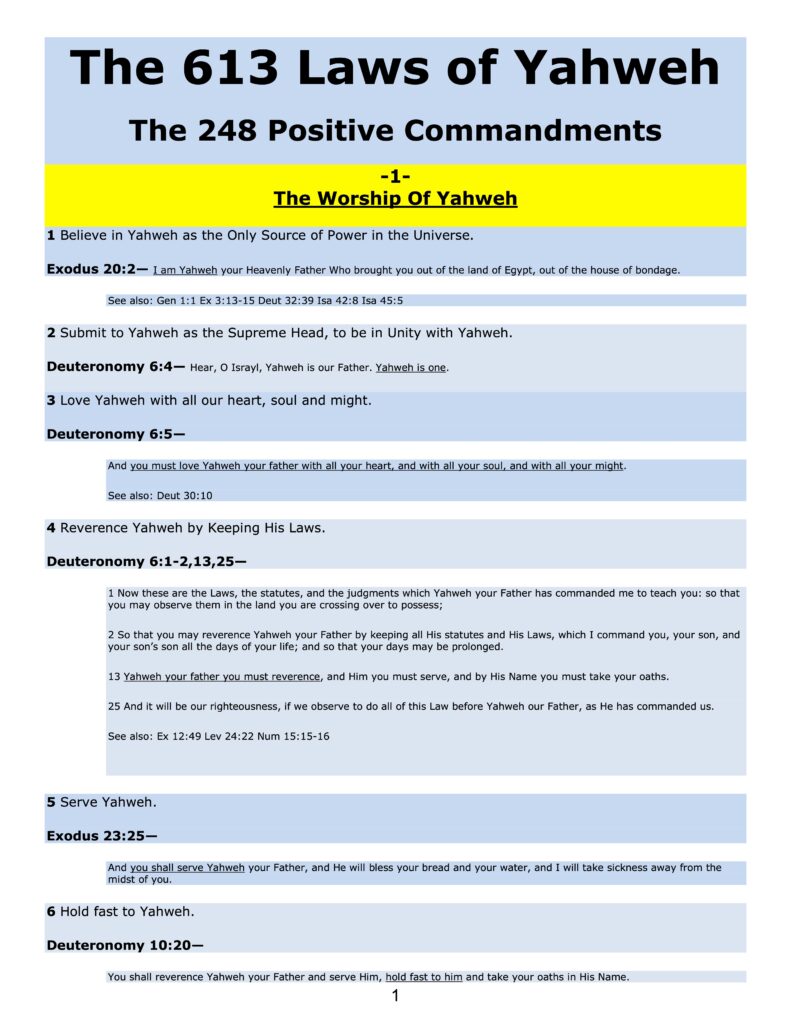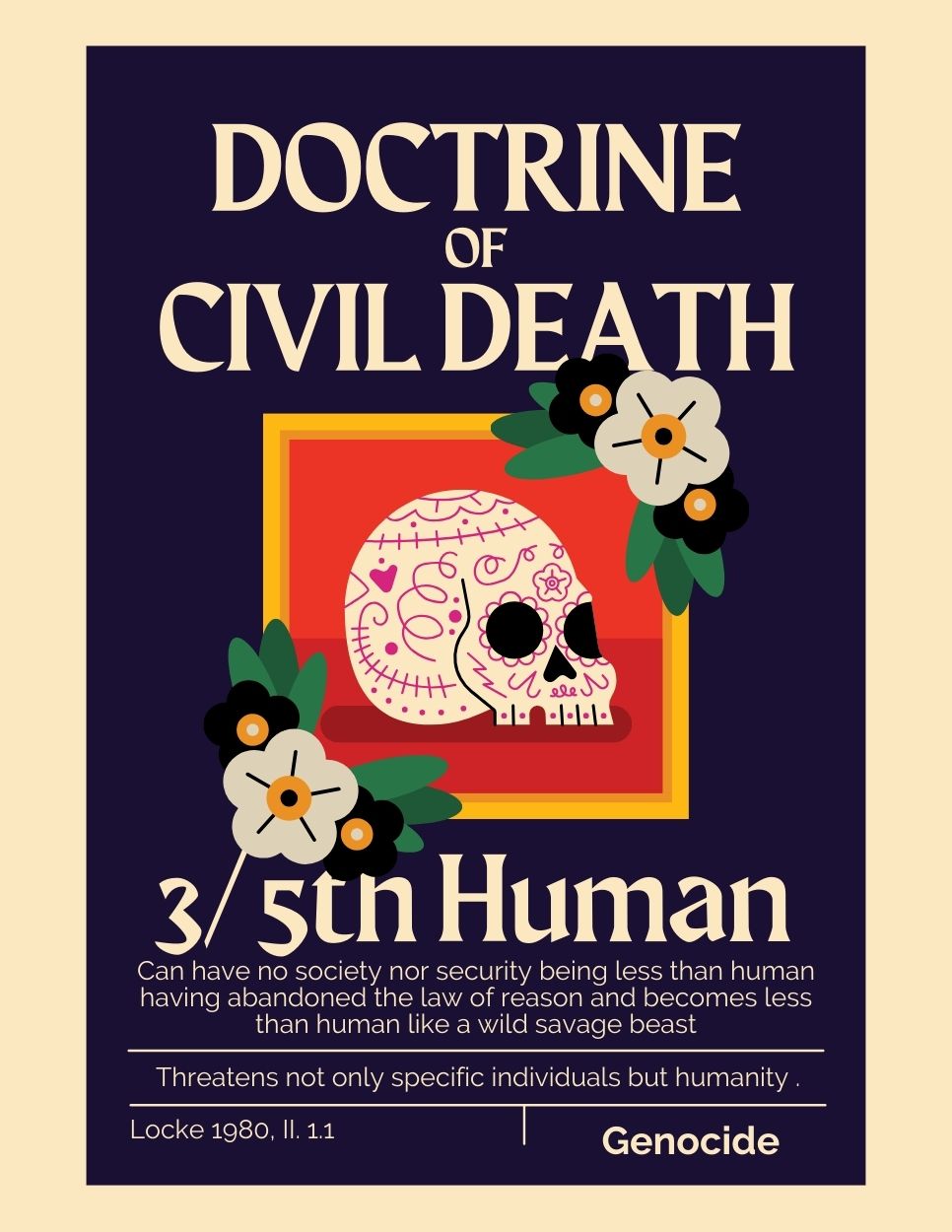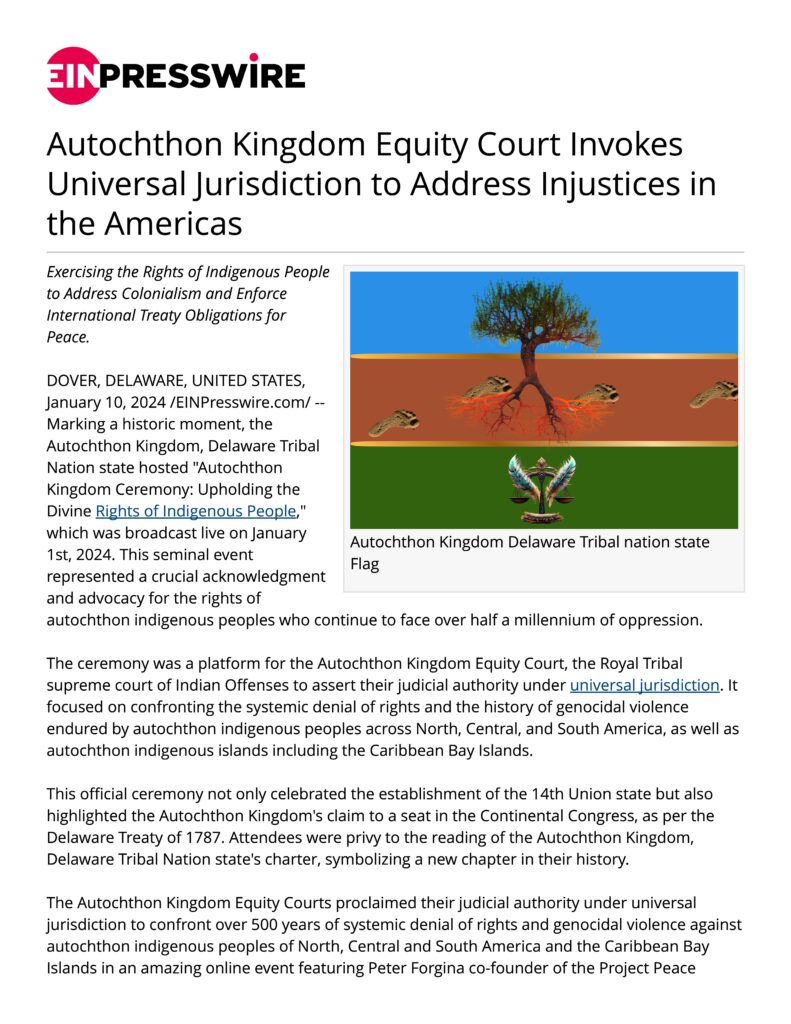
Divine Law – Ipso Jure
Autochthon Kingdom Delaware Tribal Nation State
Empowering Just Equitable Law: The Role of the Royal Tribal Supreme Court Indian Offenses
Welcome to the Autochthon Kingdom Delaware Tribal Nation State, where tradition meets equity in just law. Our community is founded on the principles of sovereignty, spirituality, and respect for Divine Law.
Enforcing Divine Law
At the heart of our equitable system lies the Royal Tribal Supreme Court Indian Offenses, a beacon of equity and just law. Unlike conventional courts, we operate under the guidance of Divine Law, which transcends human common law and civil statutes. Our mission is clear: to ensure that just law is observed in accordance with the highest principles of morality and righteousness.
Universal Jurisdiction in Equity
The Royal Tribal Supreme Court Indian Offenses exercises Universal Jurisdiction in equity, empowering us to adjudicate matters that transcend geographical boundaries and legal frameworks. Our authority is rooted in the timeless principles of Divine Law, allowing us to render judgments that reflect the sanctity of spiritual truth and just law.
Civiliter Mortus: Restoring Spiritual Harmony
In our equitable pursuits, we address those engaged in genocide by declaring Autochthon Indigenous People Civiliter Mortus – a state of spiritual death attained through the extinguishment of inherent rights and free will. By aligning our actions with Divine Law, we strive to restore balance and harmony within our community, ensuring that equity is honored with integrity and compassion.
Divine Journey
“Civiliter Mortus” is a Latin term that translates to “civilly dead” or “legally dead.” In legal terms, it refers to the loss or extinguishment of certain rights and privileges due to a legal status or condition. However, in a broader philosophical or spiritual context, the concept of Civiliter Mortus can be interpreted as a form of spiritual death.
In this interpretation, Civiliter Mortus represents a state of spiritual dormancy or disconnection from higher truths, values, or principles. It suggests a condition where an individual or society has become morally or spiritually bankrupt, lacking in integrity, compassion, or a sense of purpose beyond mere material existence.
Spiritual death, in this sense, does not necessarily imply physical death but rather a loss of spiritual vitality, meaning, or purpose. It can manifest as a lack of empathy, ethical conduct, or a sense of connection to something greater than oneself, such as community, nature, or the divine.
Civiliter Mortus as spiritual death may occur when individuals or societies prioritize material gain, power, or self-interest over principles of justice, compassion, and ethical conduct. It can result from the erosion of moral values, corruption of institutions, or the dehumanization of individuals through oppression, discrimination, or exploitation.
The concept of Civiliter Mortus as spiritual death underscores the importance of cultivating moral and spiritual awareness, integrity, and empathy in individuals and societies. It serves as a reminder of the consequences of losing sight of higher truths and values in pursuit of material wealth or power.
Ultimately, the interpretation of Civiliter Mortus as spiritual death highlights the interconnectedness of legal, moral, and spiritual dimensions of human existence and underscores the importance of striving for justice, integrity, and spiritual enlightenment in all aspects of life.

Genocide by exercising the “Doctrine of Civil Death”

